
Dive into award-winning poetry for National Poetry Month
April 22, 2021
April is a National Poetry Month and whether you're a fan of limmerick, free verse, haiku or sonnet poetry, Charlotte Mecklenburg Library has your preferences covered. If you're looking to explore a new work of poetry or you're craving a certified classic, check out a book from our list of recommended titles below.
Click here to find this AWARD-WINNING list in the Library catalog.
ADULT
The Tradition by Jericho Brown
2020 Pulitzer Prize winner, Poetry
Brown's third collection (after The New Testament) pulsates with the acute anxieties of racial and sexual difference, the psychologically complex intersections of personal intimacy with social responsibility and the inescapable legacy of violence and pain intrinsic to vulnerable lives in an unjustly constructed world. A consummate craftsman, Brown conveys emotional and provocative content through plainspoken yet subtly lyrical forms whose delicacy only heightens the subversive force of his ideas, which can be delivered with unabashed, declarative candor. Verdict: Though many poems here risk intruding on some readers' comfort zones, Brown's uneasy fusion of art, conscience, eroticism and rage - like any serious poetry worth close attention - aspires to greatness within the fragmented immediacies of our historical moment while suggesting a shared human destination:"A poem is a gesture toward home."
Only as the Day is Long by Dorianne Laux
Teaches at NC State, Pulitzer finalist, A National Book Critics Circle Award finalist and a recipient of the Oregon Book Award and the Paterson Prize
Featuring selections from five books augmented by 20 new poems, this generous volume from Laux (The Book of Men) reads something like a life story: notably, one that begins with familial fear, incest and abuse. Travelling through confusion, adult sex, motherhood, love, fatigue and redemption, Laux ends where she begins: with her mother, who is, to the last, a troublesome nurse. In spite of everything, the poet can't help but celebrate the self's mistakes and triumphs. When Laux welcomes readers into a personal moment, she speaks for humankind: "We've forgotten the luxury of dumbness/how once we crouched naked on an outcrop/ of rock, the moon huge and untouched/above us, speechless." Concrete places abound: bedroom, trailer, hospital psychiatric ward, a porch. There is a lot of sex; for example, "Vacation Sex," an aroused version of a travel tour, revels in its own obsessive pleasure. Some of the best poems here appear toward the chronologically organized collection's end, where humor arrives despite a mother's growing dementia. And in the long biographical poem "Arizona," Laux writes lovingly of that same mother's face as "a map of every place she'd been." This is a catalogue of honest work, from beginning to end.
The Carrying by Ada Limon
Finalist for the National Book Award, the National Book Critics Circle Award and the Kingsley Tufts Award.
National Book Award finalist Limón (Bright Dead Things) here weaves nature, family and grief into a stunning collection. Several poems recount the loss of the speaker's first husband from a drug overdose, but although pains are often described - whether caused by grief, infertility, or a crooked spine - Limón's poems sing with the joy of life: "I wish to be untethered and tethered all at once, my skin/ singes the sheets and there's a tremor in the marrow." The poet mourns not only for people lost but also for irreplaceable things such as languages: "In the time it takes to say I love you, or move in with someone/...all the intricate words/ of a language become extinct." Many poems begin or turn on the unexpected, as in "The Vulture & the Body": "What if, instead of carrying// a child, I am supposed to carry grief?" Occasionally, there are too many unessential details, and although most of Limón's similes are strikingly good, she sometimes settles for the easy: "I saw seven cardinals brash and bold/ as sin in a leafless tree." Nevertheless, in accessible language, Limón writes movingly about finding the spectacular in the everyday. Verdict: Limón's vision is realistic, at times bleak, yet these poems often brim with optimism, revealing a reverent, extraordinary take on the world. Don't miss this life-affirming collection.
YOUNG ADULT (YA)
What My Girlfriend Doesn't Know by Sonya Sones
Christopher Award, the Myra Cohn Livingston Award for Poetry, the Claudia Lewis Poetry Award, a Los Angeles Times Book Prize nomination and a Cuffie Award from Publisher’s Weekly for Best Book Title of the year. But the coolest honor she ever received was when her novel, What My Mother Doesn’t Know, landed her a spot on the American Library Association’s list of the Most Frequently Banned Authors of the 21st Century.
Returning with a sequel to the well-received What My Mother Doesn't Know, Sones delivers another engaging story about young love, this time from the boy's perspective. This free-verse novel opens with 14-year-old Robin worrying that he will soon be dumped by his girlfriend, Sophie (star of the previous book), who is being ostracized at school for dating "the guy whose last name people use as a diss." ("Let's face it/ I'm the type of guy/ who doesn't even have any buddies/ on my buddy list," Robin says.) But Sophie is her own person and together they form a plan to rise above the derision by laughing at themselves. Robin is believable and endearing as he struggles to make sense of his devotion to his "amazing girlfriend," his nascent sexuality and his attraction to Tessa, a girl in his art class at Harvard who is refreshingly unaware that he is the butt of jokes at his high school. When Sophie catches him kissing Tessa, Robin has to do something dramatic to win her back. Concrete poems and comics punctuate the text, adding interest to the form. The author's fans will be delighted to have a new installment written with the same raw honesty and authentic voice as the original.
Punching the Air by Ibi Zoboi and Yusef Salaam
National Book Award Finalist
Zoboi (Pride) and Salaam (one of the Exonerated Five) together craft a powerful indictment of institutional racism and mass incarceration through the imagined experience of Amal, a Black, Muslim 16-year-old facing imprisonment. Amal, a gifted artist and poet attending a prestigious fine arts high school, has his life turned upside down when a nighttime park confrontation leaves a white kid from the other side "of that invisible line/ we weren't supposed to cross" in a coma, and Amal and his four friends on the hook for assault and battery they did not commit. Using free verse, Zoboi and Salaam experiment with style, structure, and repetition to portray "old soul" Amal's struggle to hold on to his humanity through the chaotic, often dehumanizing experience of juvenile incarceration. From the trial onward, the authors liken the pervasive imprisonment of Black bodies to the history of chattel slavery in America ("and this door leads to a slave ship/ and maybe jail"), and describe how educational racism feeds Black students into the school-to-prison pipeline ("I failed the class/ she failed me"). Zoboi and Salaam deliver an unfiltered perspective of the anti-Blackness upholding the U.S. criminal justice system through the eyes of a wrongly convicted Black boy ("shaping me into/ the monster/ they wanted me to be").
CHILDREN
A Light in the Attic by Shel Silverstein
William Allen White children’s Book Award
A fat volume of small illustrated rhymes from Silverstein, who gets down to the level of kids' peeves, spooks, and sense of silliness often enough to score a collective hit. His cast includes a babysitter who thinks her job is to sit on the baby, a selfish child who prays that if he dies his toys will break so no one else can have them, a walrus with braces, and a man who thought he had wavy hair till he shaved it off and found he had a wavy head. There are some funny twists and take-offs on familiar rhymes and tales—such as a speculation on what would happen if Captain Blackbeard shaved, and a warning to the "Rockabye" baby that a treetop is no place to rock: "Baby, I think someone down here's got it in for you." There are also a number of typical twist endings, many of them lame or predictable - but then you can't expect 168 laughs in 168 pages. For undertow, there's the eyeball in the gumball machine (a sentinel reminder that "I" have had enough gumballs) and the fearful "Whatifs" that climb into "my" ear at night. All in all, bright and knowing nonsense.
Firefly July by Paul B. Janeczko
2019 Award for Excellence in Poetry for Children
Organized by the seasons, beginning with spring, this collection of 36 impeccably chosen short poems demonstrates that significant emotional power can reside in just a few lines. In obvious contrast with such small bites of poetry, the large-format design explodes with bright and expressive watercolor, gouache and mixed-media collages. Colors and shapes with willowy details expertly blur or bring bits of the images into focus to create a magical sense of place, time and beauty. The poems range from work by William Carlos Williams, Emily Dickinson and Langston Hughes to that of James Stevenson, Joyce Sidman and Ralph Fletcher. The first verse opens the book with daybreak, and after exploring the whole year, the final selection sends readers off to sleep: "A welcome mat of moonlight/on the floor. Wipe your feet/before getting into bed" (Jim Harrison and Ted Kooser). Every poem evokes a moment, and, combined with its corresponding full-bleed illustration, the season is captured for readers to remember, experience, or anticipate.

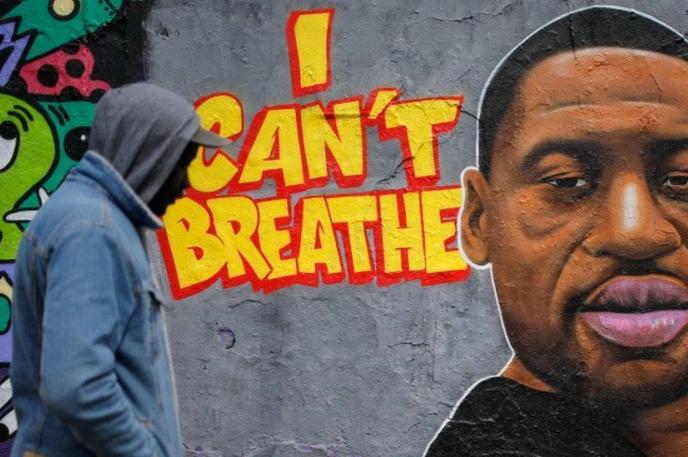
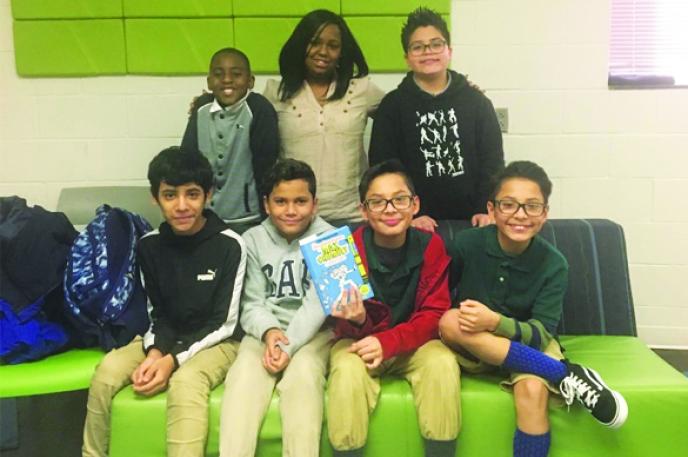
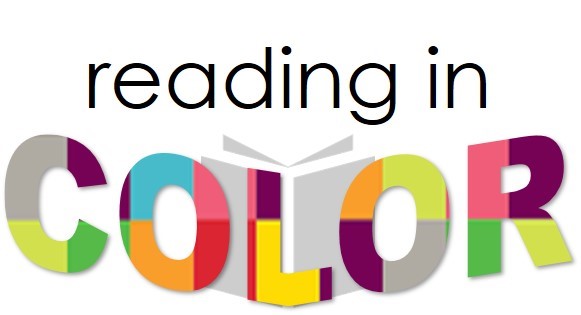 As the program grew, so did the popularity and the number of schools requesting it. In 2018, Reading in Color was branded and a team of library staff was formed to meet the need at additional schools. The main community partner for this successful program is Communities in Schools.
As the program grew, so did the popularity and the number of schools requesting it. In 2018, Reading in Color was branded and a team of library staff was formed to meet the need at additional schools. The main community partner for this successful program is Communities in Schools.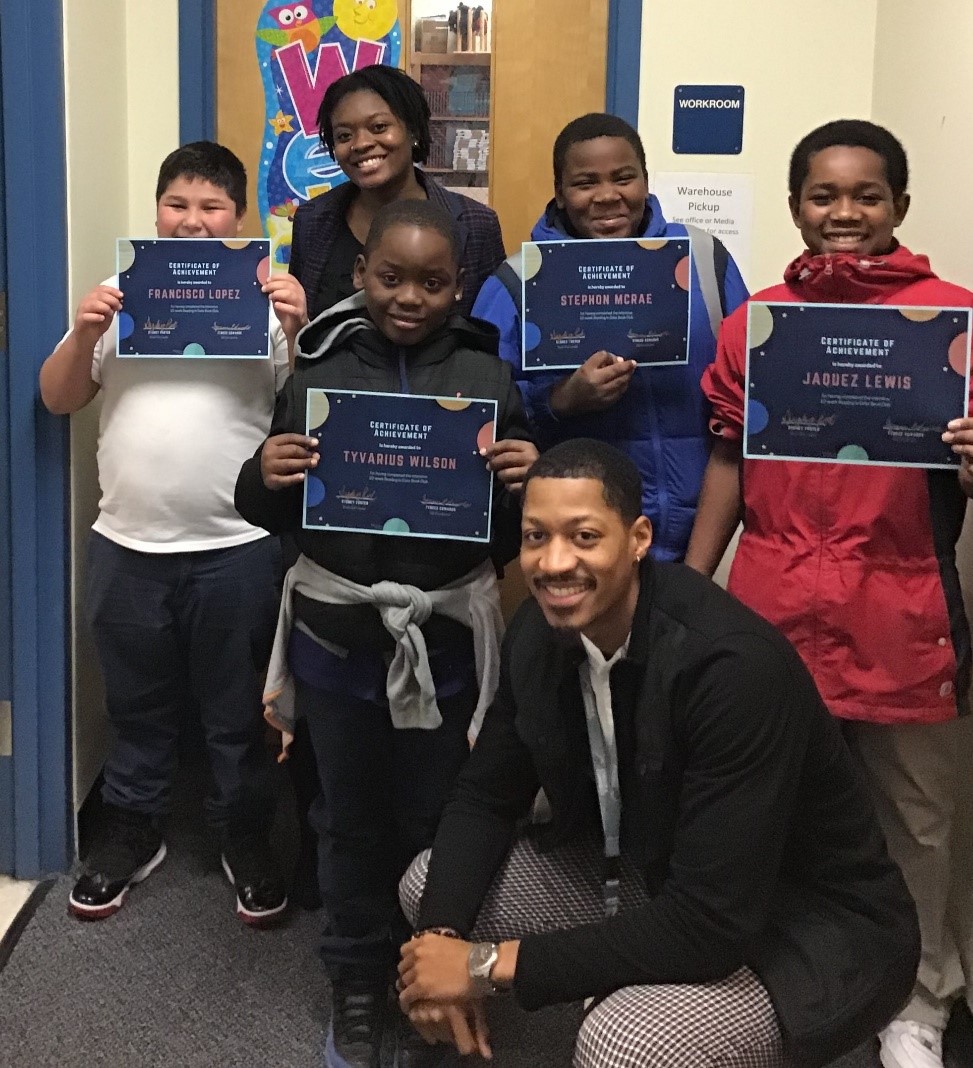
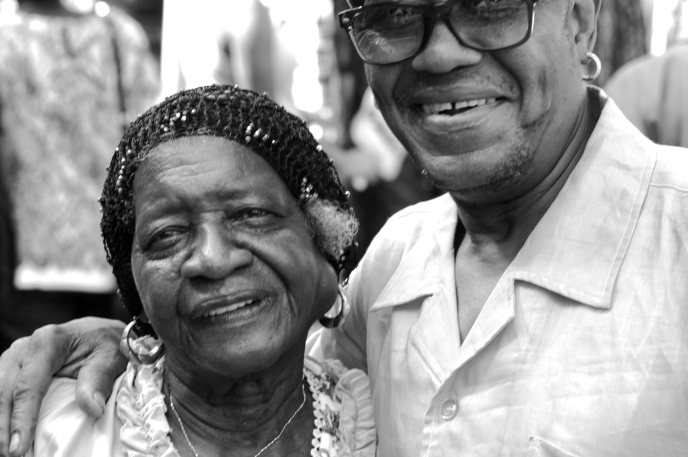

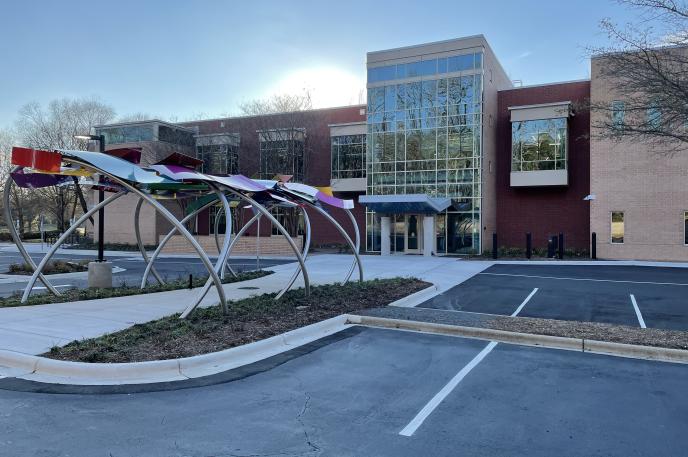
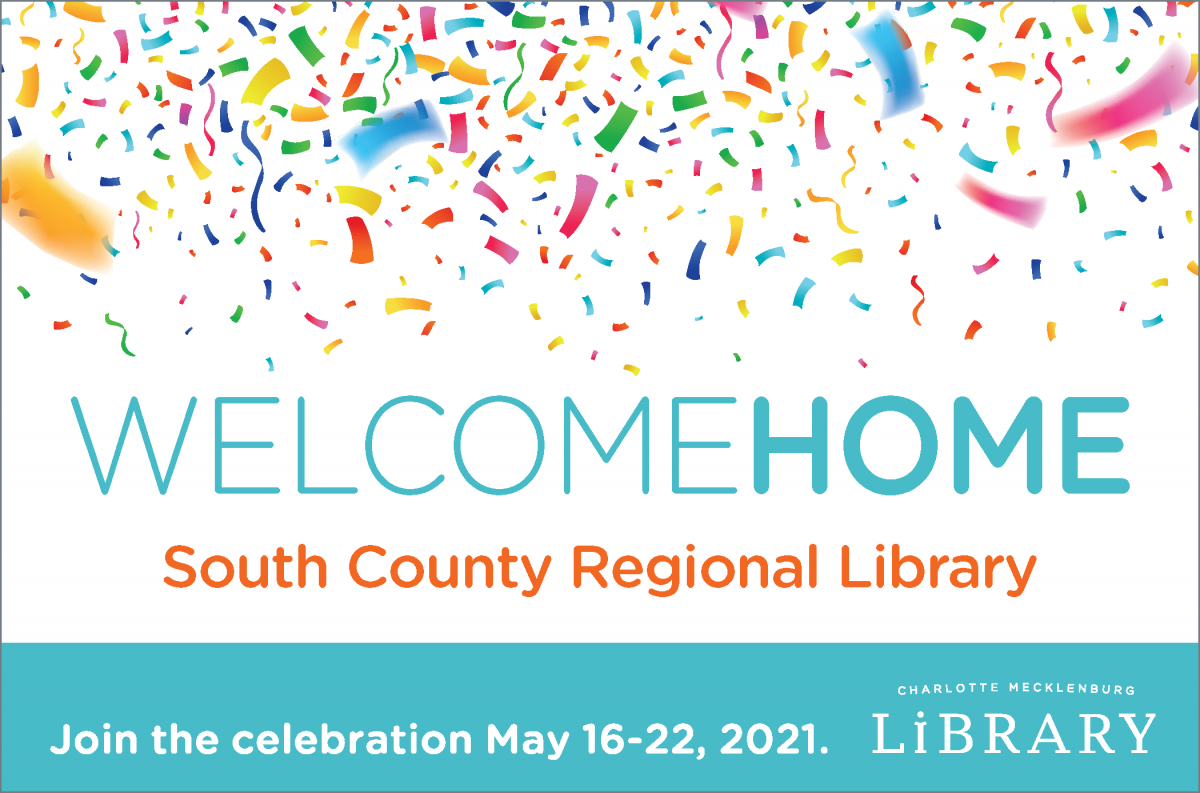


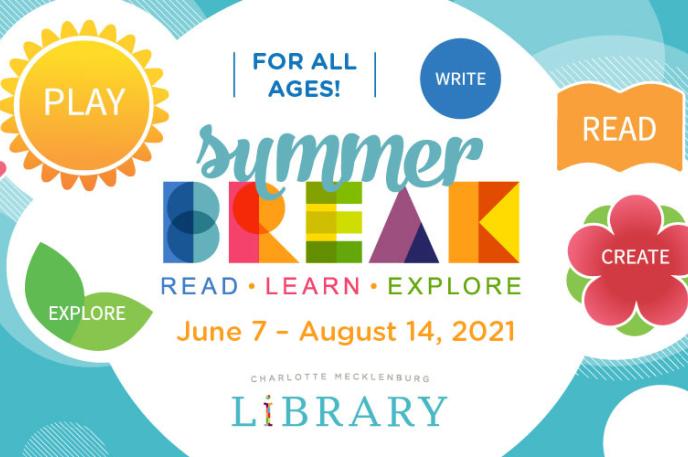
 Summer Slide
Summer Slide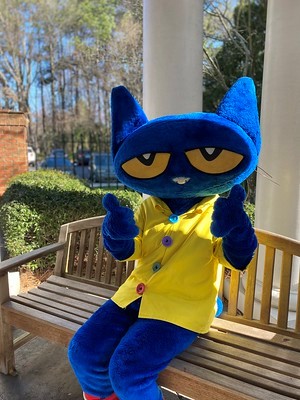 This summer, take the time to find the perfect place to read outside. Will you choose a park, a garden, your backyard, or some other amazing location? Take a picture and share on social media with the hashtags #cmlsummerbreak, #cmlibrary.
This summer, take the time to find the perfect place to read outside. Will you choose a park, a garden, your backyard, or some other amazing location? Take a picture and share on social media with the hashtags #cmlsummerbreak, #cmlibrary.